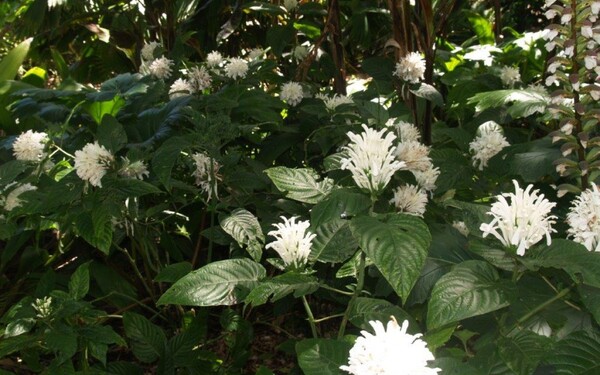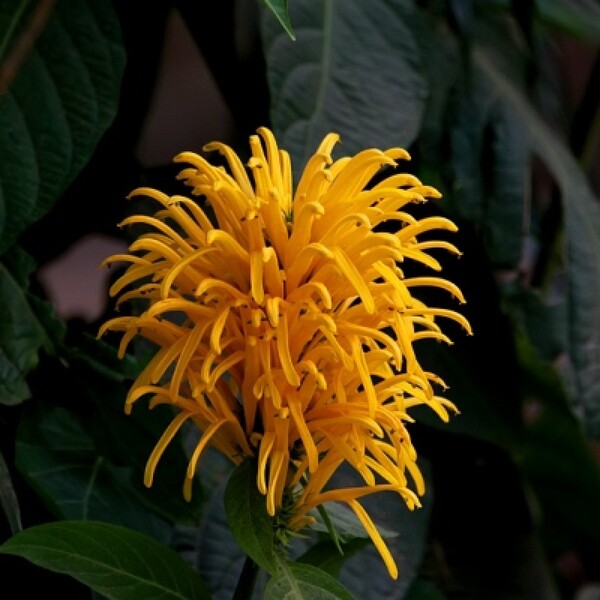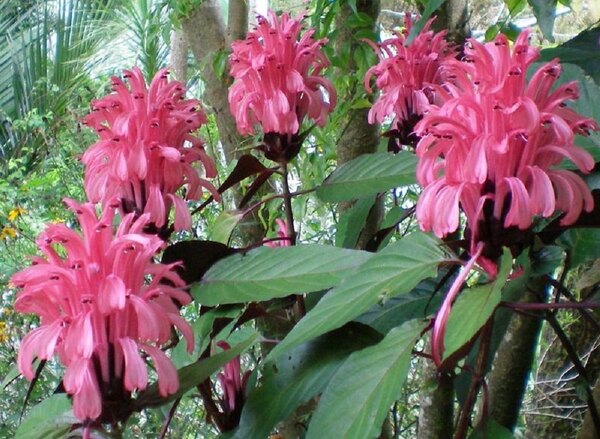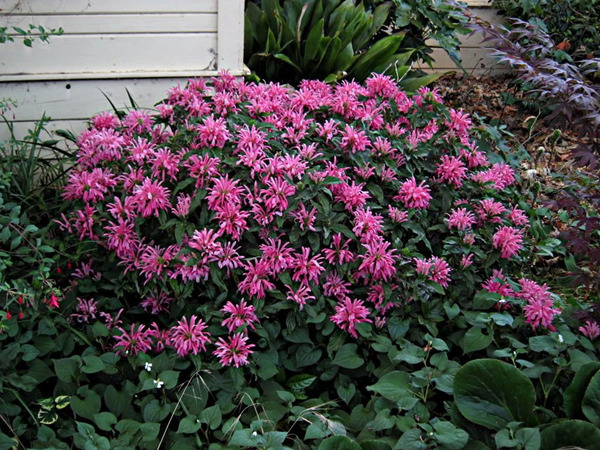If you're looking to add a touch of tropical charm to your garden, the coral plant (Justicia carnea) is a fantastic option. With its vibrant, coral-like blooms and lush green foliage, it’s a showstopper that will definitely catch the eye. Native to Brazil and other parts of South America, this plant thrives in warm, sunny conditions and is loved for its striking appearance and easy care.

The coral plant, also known as Brazilian coral or pink Justicia, is a member of the Acanthaceae family. It’s known for its long, tubular flowers that come in shades of pink, red, or white, often grouped in clusters at the top of the stems. The plant has large, glossy leaves that provide the perfect backdrop for its bright, eye-catching blooms. Whether you plant it in the garden or in a container on your balcony, the coral plant will surely stand out.
Coral plants are relatively easy to grow, and they adapt well to various environments, especially if you live in a tropical or subtropical region. Here’s how to make sure your coral plant thrives:
Coral plants love sunlight, but they don’t like being scorched by direct, intense sun for long periods. Ideally, they need a spot where they can enjoy some sunlight, but also have partial shade during the hottest part of the day. A location with bright, indirect light is perfect for this plant. If you’re growing it indoors, a sunny windowsill or a well-lit room will work just fine.
Like most tropical plants, coral plants prefer well-draining soil. You can use a standard potting mix or enrich your soil with compost or organic matter to improve its fertility. If planting in a container, make sure it has drainage holes to prevent water from accumulating and causing root rot. Coral plants don’t mind a bit of moisture, but they don’t like to sit in soggy soil for too long.
Water your coral plant regularly, especially during hot, dry weather, but make sure the soil has time to dry out between waterings. Overwatering can lead to root rot, so always check the moisture level before adding more water. During winter or cooler months, reduce watering as the plant’s growth slows down.

Coral plants love warmth, and they thrive in temperatures between 60-85°F (15-29°C). They are not frost-hardy, so if you live in a colder climate, it’s best to grow them in containers so you can bring them inside during the winter months. In warmer climates, they can be grown year-round outdoors.
Feed your coral plant once a month during the growing season (spring and summer) with a balanced liquid fertilizer. This will encourage healthy growth and abundant blooms. You can stop fertilizing in the fall and winter when the plant isn’t actively growing.

The main attraction of the coral plant is, of course, its flowers. The tubular blooms are perfect for attracting pollinators like butterflies and hummingbirds, making it a great addition to any wildlife-friendly garden. The flowers appear in clusters, adding a burst of color wherever you plant them.
Coral plants are relatively low-maintenance once established. They don’t require constant attention, and with just a little care, they will reward you with gorgeous blooms throughout the year. This makes them a great choice for both beginners and experienced gardeners.
Coral plants are highly versatile. Whether you want to add color to your garden beds, borders, or containers, they fit in beautifully. They can also be grown in hanging baskets, adding a cascading effect as they grow taller. Their lush, green foliage makes them a perfect backdrop for other flowering plants, and their unique flowers provide a beautiful focal point.
Propagating coral plants is easy, and there are two main methods: stem cuttings and seed propagation. Here’s how to do both:
Stem Cuttings: To propagate your coral plant by cutting, take a healthy 4-6 inch stem cutting and remove the lower leaves. Place the cutting in a glass of water or directly into a pot with moist, well-draining soil. Within a few weeks, roots should begin to form. Once the cutting has rooted, you can transfer it to a larger pot or plant it outdoors.
Seeds: Coral plants can also be grown from seed, though it takes a bit longer. Plant the seeds in moist soil and keep them in a warm, sunny spot. Germination can take several weeks, so be patient. Once the seedlings are strong enough, they can be transplanted into larger containers or directly into the ground.
While coral plants are relatively pest-resistant, they can still attract some common garden pests, such as aphids or spider mites. Here’s how to handle them:
Aphids: These small insects can suck the sap from the plant, leading to yellowing leaves. Use insecticidal soap or a homemade solution of water and dish soap to spray the affected areas.
Spider Mites: These tiny pests can cause stippling or discoloration of the leaves. Regularly rinse the plant with a gentle stream of water to wash away spider mites, or use a mild pesticide.
Root Rot: Overwatering can cause root rot, so make sure your coral plant has good drainage and that you’re not watering too frequently.

The coral plant (Justicia carnea) is a stunning addition to any garden, offering vibrant flowers and lush foliage with minimal care. It’s an excellent choice for gardeners looking for a low-maintenance, eye-catching plant that thrives in warm, sunny environments. Whether you grow it in the ground or in containers, this tropical beauty will brighten up your space and attract pollinators all year round. Add a coral plant to your garden today and enjoy its beauty for years to come!
animal tags: Justicia-carnea
We created this article in conjunction with AI technology, then made sure it was fact-checked and edited by a Animals Top editor.